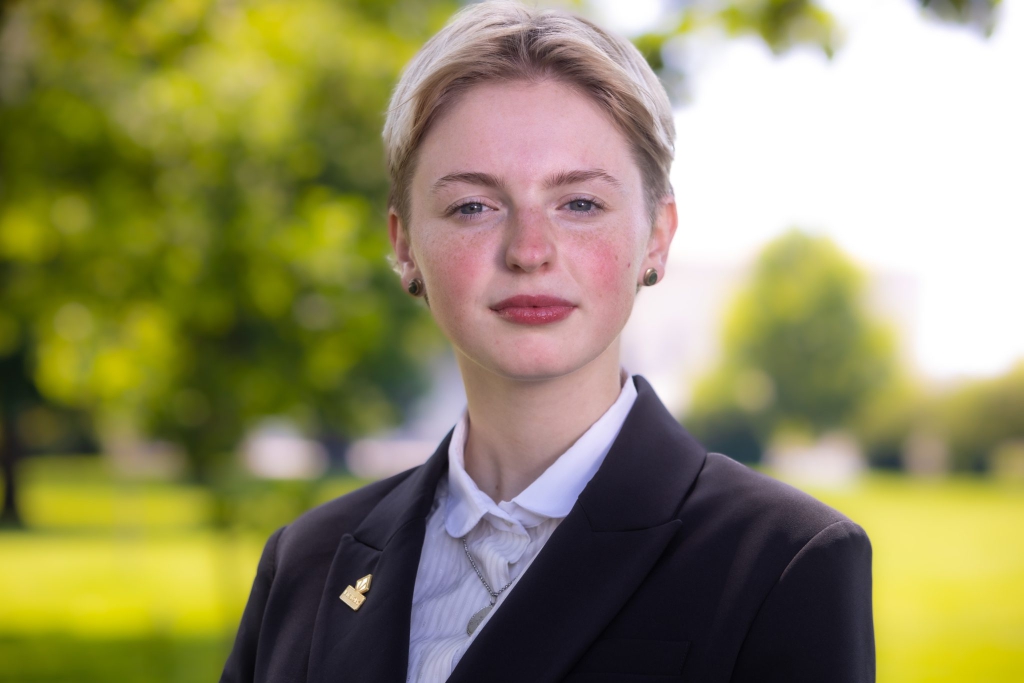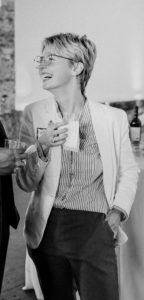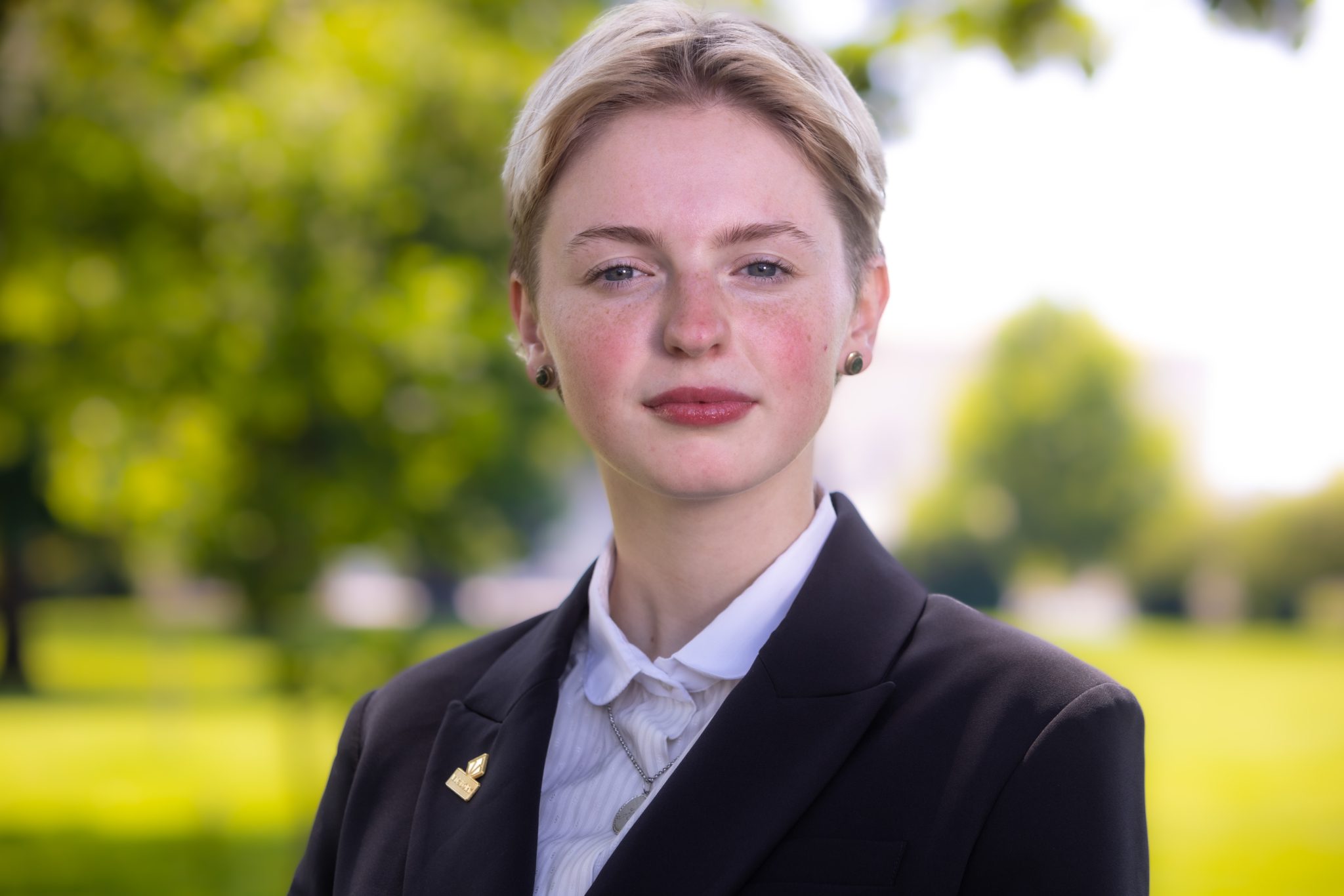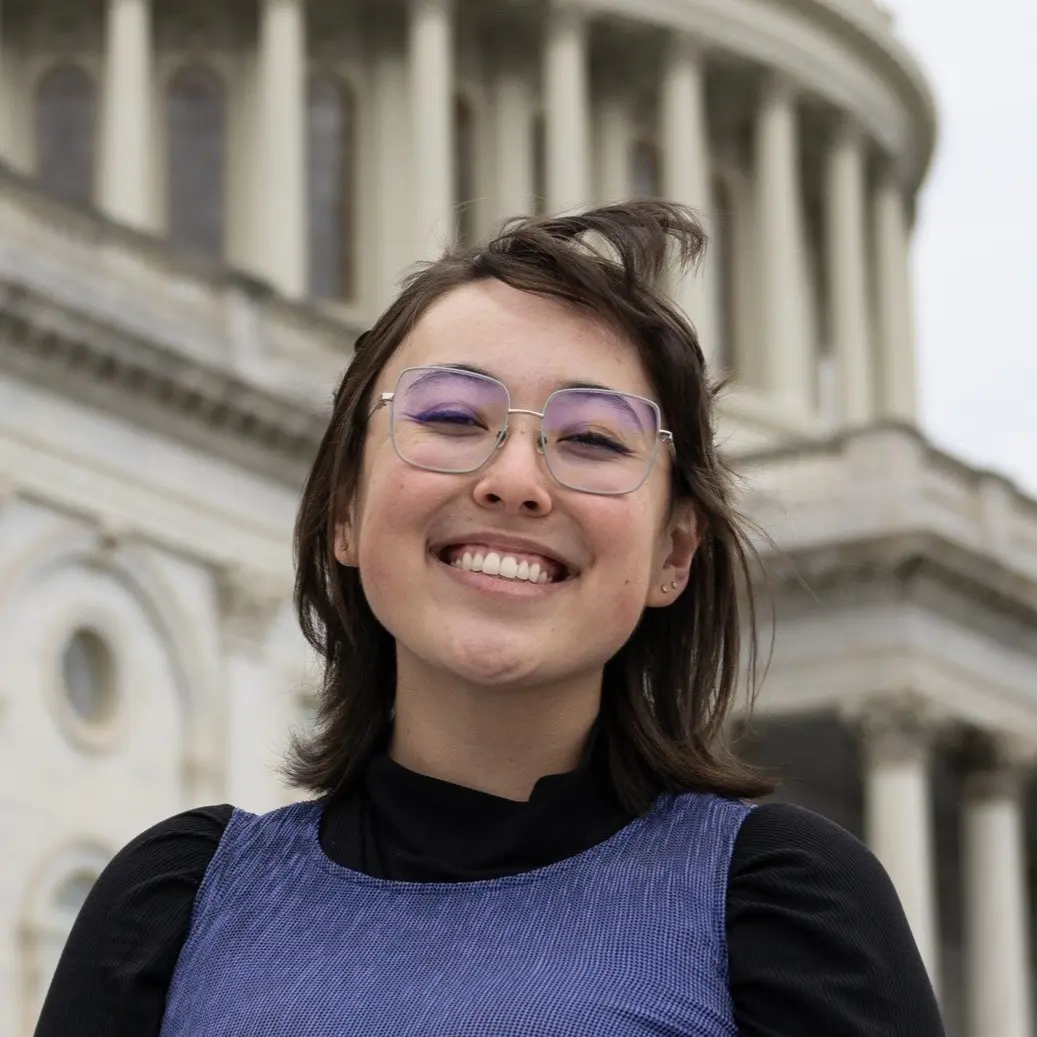
OUT ON THE HILL is the official blog of the Victory Congressional Interns. Views expressed do not necessarily reflect those of LGBTQ Victory Institute. Learn more about the internship at victoryinstitute.org/vci.
———————————–
To reflect on the end, I must go back to the beginning. I arrived in Washington, D.C. with an overweight suitcase, an empty camera card, and a longing to learn. I will never forget walking into the U.S. Capitol for the first time, seeing the rotunda with fifteen other individuals who the system was built against. I will also never forget walking out of the U.S. Capitol for the last time, alone, within a system still built against me.
Working in the House Democratic Caucus, I truly was in the room where it happens. I sat in meetings with members, held the door for Speaker Nancy Pelosi, and wrote policy memos to Chairman Hakeem Jeffries. I watched the process unfold to pass the Protecting Our Children Act in real time. I spoke to Representative Pramila Jayapal about her introduction of the Transgender Bill of Rights. I attended a January 6 hearing. Following a Secret Service sweep of my office, I shook the first Native American Secretary of the Interior’s hand. These experiences have been both surreal and an honor.
This being said, I also watched as Roe v. Wade got overturned, a mass shooting unfold after sweeping gun control in the House, and the climate crisis continue with no action. These realities are one thing in Washington, D.C., yet entirely different in my home state. As soon as I could, I was at the Supreme Court on June 24. I clutched my sign, tears stinging my eyes, snipers moving on the roof of the court, as I texted a phone number for community abortion locations nearest to College Station, Texas. The reply was meant to define three locations. In Washington, D.C., it would have. In Texas, I was replied with “Undefined, Undefined, Undefined.” I watched as Highland Park unfolded, seven dead, 46 wounded, not even two months after 19 children and two teachers were murdered in the town where much of my Mom’s side of the family lives. I have overlooked the hottest week-long stretch of history in Texas from a distance. Yet another environmental justice crisis, families are losing power, the grid is beginning to fail again, and there is the worst air quality in a decade. When you are in the room where it happens, it can feel like it means very little when action is slow.
Though life has not stopped at home, I have also found solace here in D.C. with the people I have met through the LGBTQ Victory Institute. Other interns and I have built a community through late nights spent together sharing our lived experiences. To note just a handful of memories, we went to local drag shows, the city’s wide variety of museums, kayaked on the Potomac, and tried countless coffee shops.
I turned twenty in Washington, D.C., an age that seemed unimaginable before arriving here. The weekend was spent with an outpour of love, something so perfect for a Cancer sun. Each year I get a birthday tattoo, with 19’s being “teach peace” and 20’s being a balanced scale. Each time I shake a hand, I am doing so with a commitment to being just and fair.
This summer has taught me countless lessons. Be sparing when offering sorries, but ample with love. If you don’t give yourself breaks, your body and mind will take one, and it will not be at an optimal time. I will not stifle myself for people that aren’t “used to” people like me. People with pronouns in their email signature will still not respect you unless you demand it. Closed mouths don’t get fed. The Speaker of the House will speak to you with more respect than her male staff will. In Washington, D.C. it really is about who you know, for better or for worse.
Through these lessons, I have solidified even further why I want to do what I want to do. My goal has always been to create the greatest amount of change for the greatest amount of people possible. The fight for queer liberation has always been intertwined with the fight for environmental justice. Those who are facing the greatest harm from the climate crisis are in poverty, are Black and Brown, and may be displaced. Those who live at the intersection of these identities are often queer, especially transgender. The fight for intersectional environmentalism has become crystal clear to me after seeing how policy is created and implemented. As I return home to continue my advocacy and resistance, I will carry with me the knowledge and experiences I have gained in Washington, D.C. Alas, there is only so much you can learn in one place.

